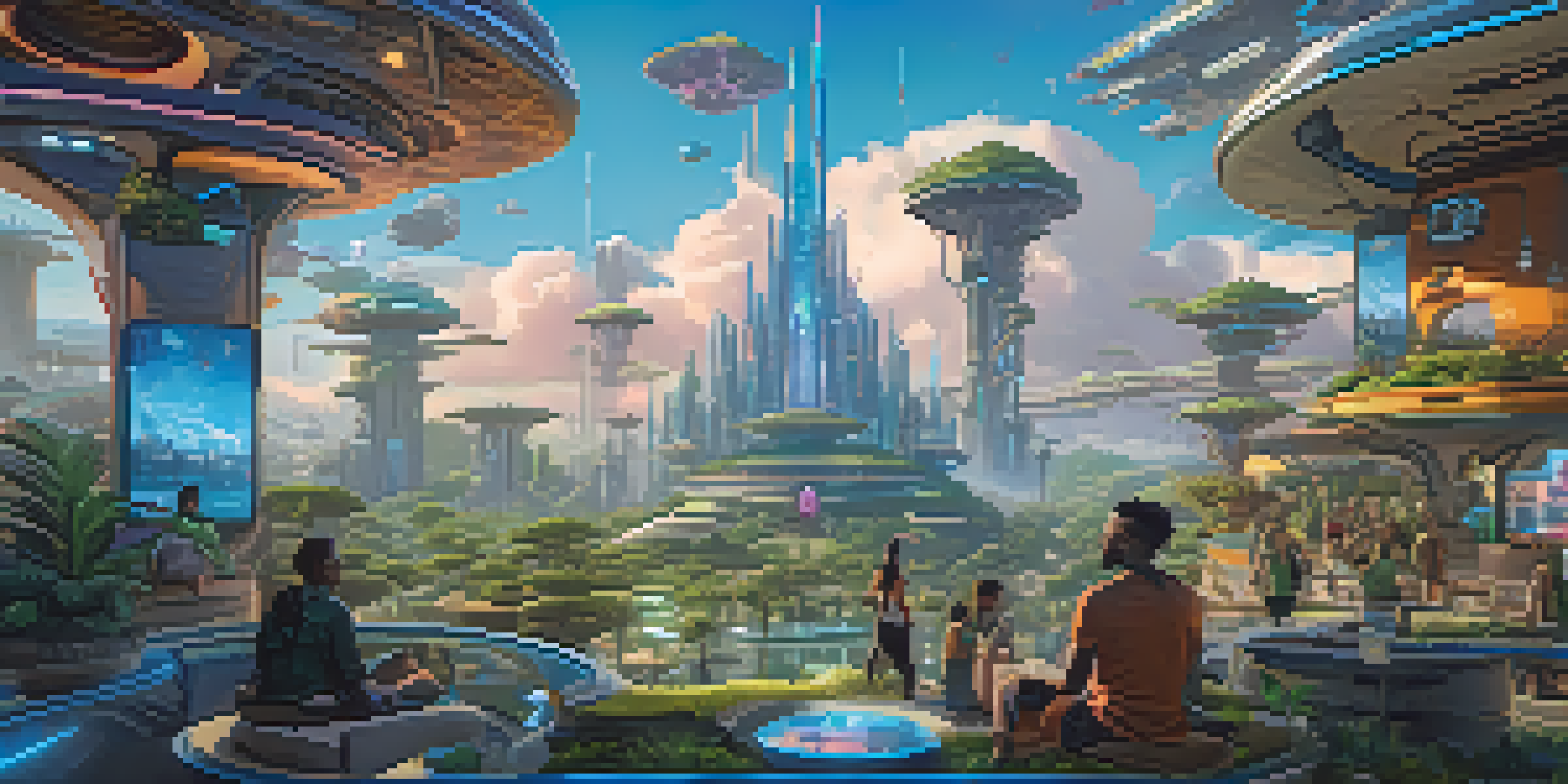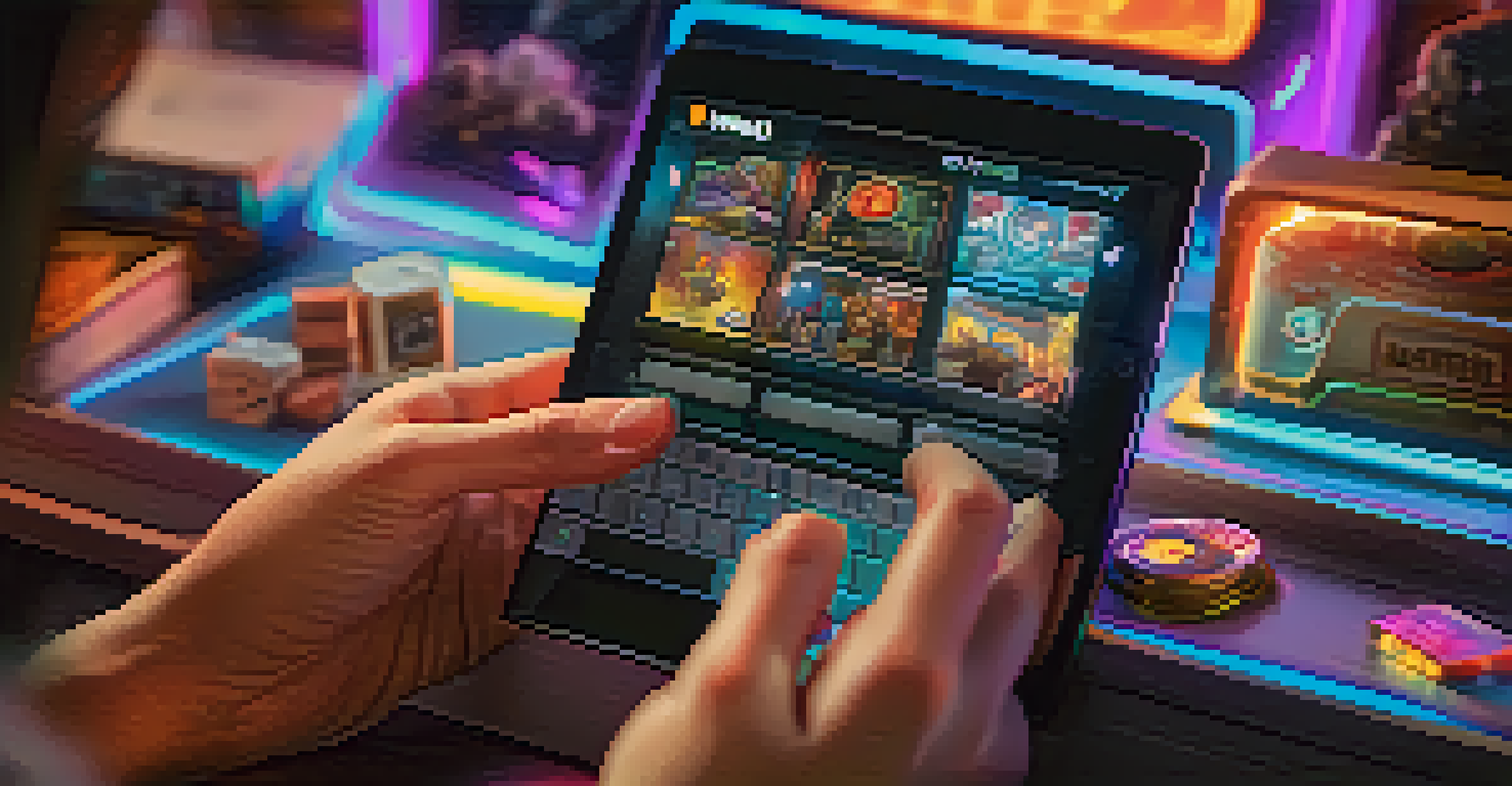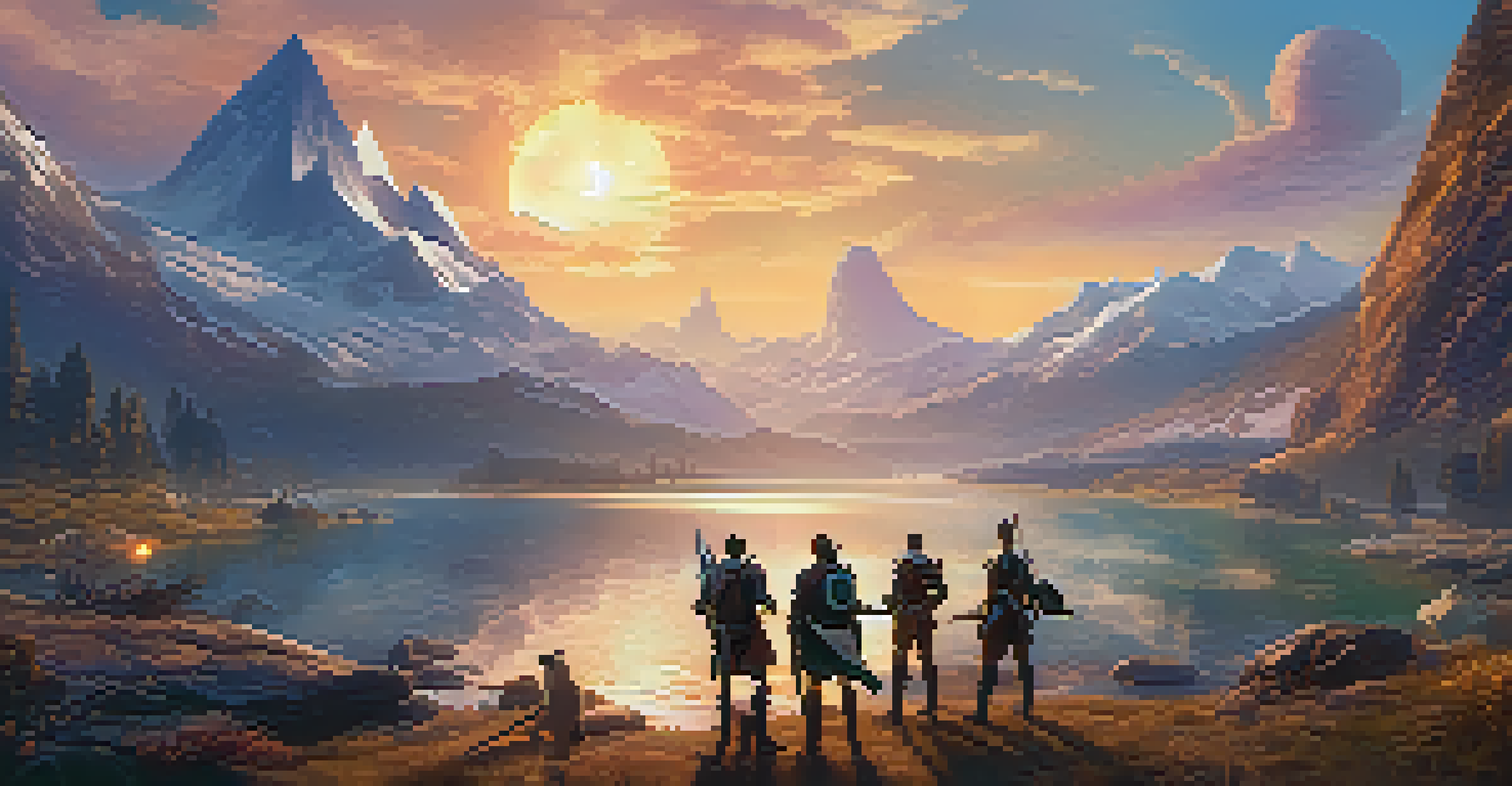NFTs and Gaming: A New Era for In-Game Assets and Ownership

What Are NFTs and Why They Matter in Gaming?
NFTs, or non-fungible tokens, are unique digital assets verified on a blockchain. Unlike cryptocurrencies, which are interchangeable, NFTs represent ownership of specific items, making them perfect for gaming. Imagine owning a rare sword in a game that only you can use or sell; that’s the power of NFTs.
The future of gaming is evolving, and NFTs are at the forefront of this transformation, giving players true ownership of their virtual assets.
In gaming, NFTs can transform how players interact with in-game assets. Traditionally, players buy items but don’t truly own them; the game developers maintain control. With NFTs, players can buy, sell, and trade their assets freely, creating a real market for virtual items.
This shift not only empowers gamers but also opens up new revenue streams for developers. By integrating NFTs, games can offer players a stake in the economy, thus enhancing engagement and loyalty. It’s a win-win situation for everyone involved.
The Benefits of NFT Ownership in Video Games
One of the biggest draws of NFTs in gaming is the concept of true ownership. Players can now possess their in-game items as verifiable assets, which they can sell or trade outside the game environment. This is akin to owning a collectible card; you can show it off, sell it, or trade it with friends.

Moreover, NFTs can provide players with a sense of pride and accomplishment. Acquiring a limited-edition skin or weapon not only enhances gameplay but also signifies status within the gaming community. Gamers can feel a deeper connection to their assets, knowing they hold real value.
NFTs Enable True Ownership in Gaming
Players can possess and trade in-game items as verifiable assets, enhancing their gaming experience.
Lastly, the potential for income generation is significant. Players who invest wisely in NFTs can profit from their trades. This new economic aspect can turn gaming from just a pastime into a viable source of income, making the gaming experience even more appealing.
How NFTs Create New Gameplay Experiences
NFTs can introduce innovative gameplay mechanics that were previously impossible. For example, players could unlock unique quests or abilities tied to specific NFTs they own. This adds layers of strategy and personalization, making each player's journey truly unique.
With NFTs, we are not just playing games; we are creating a new economy where players can benefit from their investments.
Additionally, using NFTs can encourage collaboration among players. Imagine a game where you need to team up with others who own specific NFTs to complete a quest. This fosters community and teamwork, as players must communicate and strategize together.
The potential for cross-game compatibility is another exciting aspect. In the future, your NFT sword from one game could be used in another. This interconnectedness could revolutionize how we think about gaming assets, blurring the lines between different gaming worlds.
Challenges and Concerns Surrounding NFTs in Gaming
Despite the excitement around NFTs in gaming, there are significant challenges. One major concern is the environmental impact of blockchain technology, as it often requires substantial energy to operate. This has led to debates about sustainability and the need for greener alternatives.
Another issue is the potential for scams and fraud. As with any new technology, there are bad actors lurking in the shadows, eager to exploit unsuspecting players. It’s crucial for gamers to educate themselves on how to navigate this new landscape safely.
Innovative Gameplay Through NFTs
NFTs introduce unique mechanics and encourage collaboration, creating personalized and strategic gameplay.
Lastly, there’s the question of regulation. As NFTs gain popularity, governments will likely step in to create guidelines and regulations. This could lead to a more secure environment but might also slow down the rapid innovation currently taking place.
The Future of NFTs in the Gaming Industry
Looking ahead, the integration of NFTs in gaming seems inevitable. As technology evolves, more developers will explore how to incorporate these digital assets into their games. This could lead to a flourishing marketplace where players genuinely feel their investments matter.
We may also see more partnerships between gaming companies and NFT marketplaces, creating seamless experiences for players. Imagine logging into your favorite game, where you can easily buy, sell, or trade NFTs without leaving the platform. This convenience could enhance the overall gaming experience.
In essence, the future of NFTs in gaming holds vast potential. With ongoing developments, we’re likely to witness a transformation in how players engage with and perceive value in their gaming experiences.
Successful Examples of NFTs in Gaming
Several games have successfully harnessed the power of NFTs, setting examples for others to follow. One standout is 'Axie Infinity,' where players breed and battle creatures called Axies, each represented as an NFT. This game has become a viral sensation, showcasing how NFTs can create a thriving economy.
Another example is 'Decentraland,' a virtual world where users can buy, sell, and build on virtual land. Each parcel of land is an NFT, allowing users to create unique experiences and monetize their creations. This emphasizes the endless possibilities NFTs can offer in virtual spaces.
Challenges of NFTs in Gaming
Concerns include environmental impact, potential scams, and the need for regulations as the technology evolves.
These successful implementations demonstrate that the NFT-gaming relationship is not just a fleeting trend but a paradigm shift. As more developers take inspiration from these examples, we can expect a wave of innovative games that embrace NFT technology.
How to Get Started with NFTs in Gaming
If you're interested in diving into the world of NFTs in gaming, the first step is to educate yourself. Research different platforms and games that utilize NFTs to understand their mechanics and benefits. Familiarizing yourself with blockchain technology can also be beneficial, as it forms the backbone of NFT transactions.
Next, you’ll need a digital wallet to store your NFTs. Platforms like MetaMask or Coinbase Wallet are popular choices, allowing you to manage your assets securely. Once you have a wallet, you can explore NFT marketplaces where you can buy and sell items.

Lastly, consider joining gaming communities that focus on NFTs. Engaging with other players can provide valuable insights, tips, and updates on emerging trends. By connecting with others, you’ll not only enhance your understanding but also have a more enriching gaming experience.